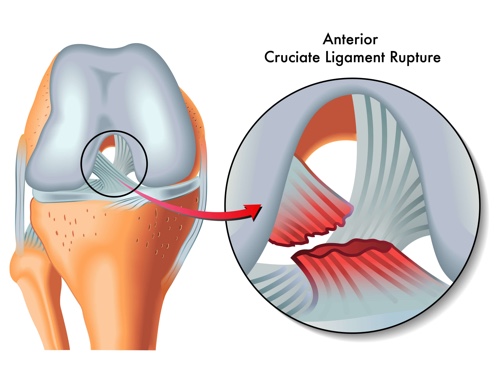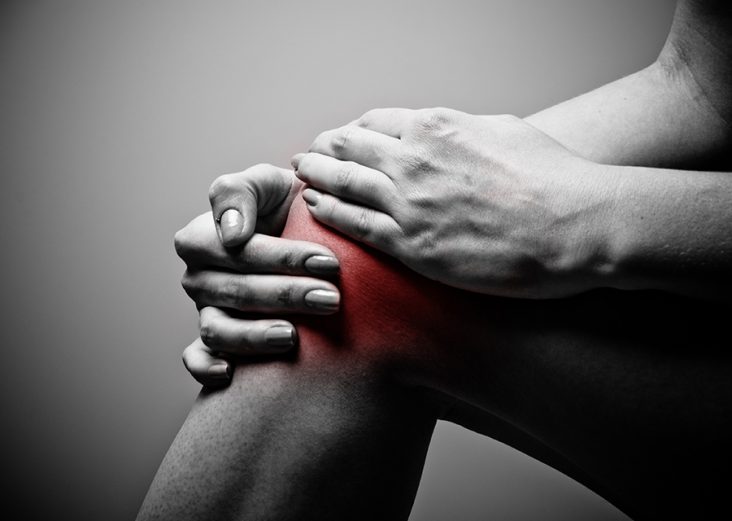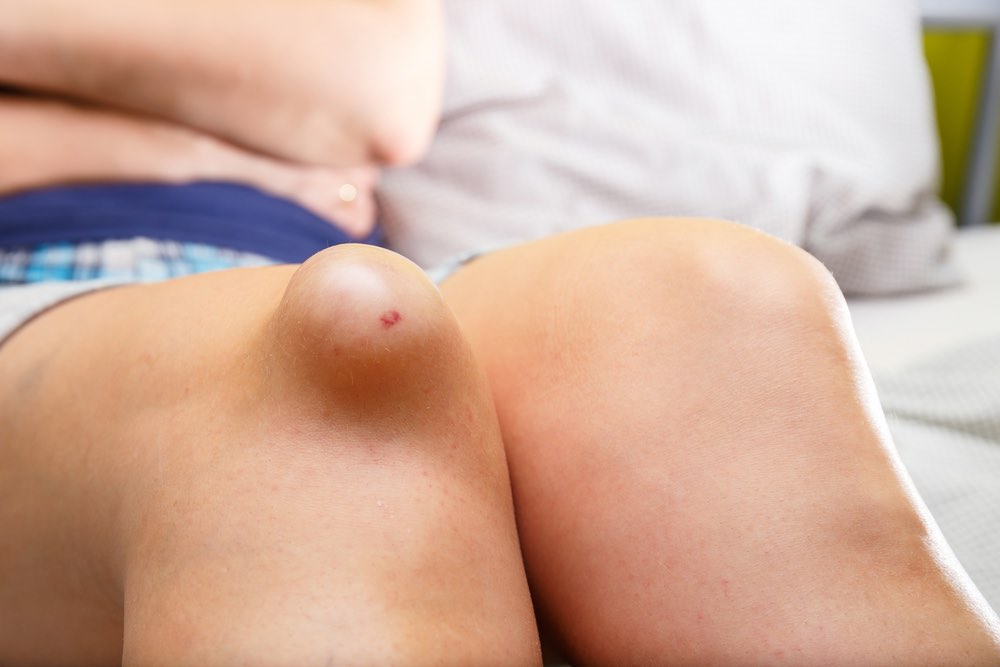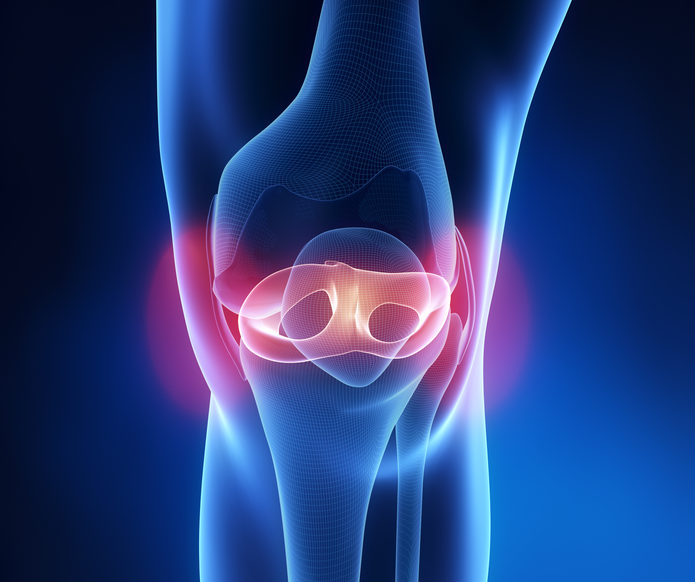Orthopaedics 360 INFO
Anterior cruciate ligament injuries occur frequently in sport. Females are more prone to ruptures than men, and generally, they result in instability requiring surgery. The ACL is a ligament inside the knee that stabilises the knee during twisting and pivoting movements. There is a blood vessel within the ligament that bursts when it ruptures, resulting in a large amount of almost immediate swelling.
The image on the left shows an ACL rupture. The symptoms that you would experience after an ACL tear are:
- Joint Stiffness
- Immediate knee swelling.
- Difficulty weight bearing
- Pain
- Instability when twisting on the knee or pivoting.
If an ACL tear is suspected, the best modality for investigation is an Xray, followed by an MRI. This allows assessment of other potential causes such as a fracture of the bone.
Non operative management for ACLs are an option, although for sporting players wanting to return to active pivoting type sports, an ACL reconstruction is generally required. In the immediate phase, R.I.C.E is the best method to reduce pain and swelling. An ACL reconstruction is best delayed until you have regained full range of motion of the the knee to avoid the occurrence of Arthrofibrosis (joint stiffness post reconstruction)
- Regular Panadol Osteo – This is the same as regular Panadol (Paracetamol) however the dose per tablet is slightly higher. This means that you should only take up to a maximum of 6 tablets per day rather than the usual 8 for Panadol.
- Ice to the knee regularly, on and off for the first week.
- Anti-inflammatory medication – Taken in short spurts, this can be a safe and effective method to reduce pain. Anti-inflammatory medication can interact with other medications, so ensure that you check with your doctor first. You should only take this sort of medication on a short burst regimen. A few days on and then a few days off.
- Physiotherapy after the first week to regain full range of motion prior to surgery.
MCL Tear
Our Surgeons discuss MCL injuries and how they can be managed.
Patella Dislocations
A guide to help understand the complex nature of patella dislocations.
Meniscus Tear
A guide to the humble meniscus tear and what you need to know
Orthopaedics 360
Orthopaedics 360
P: (08) 7099 0188
F: (08) 7099 0171
Southern Specialist Centre
Orthopaedics 360
P: (08) 7099 0188
F: (08) 7099 0171
Health @ Hindmarsh
Orthopaedics 360
P: (08) 7099 0188
F: (08) 7099 0171




